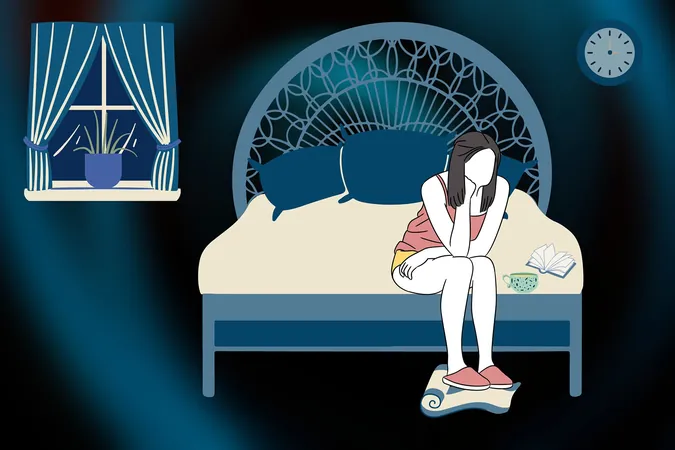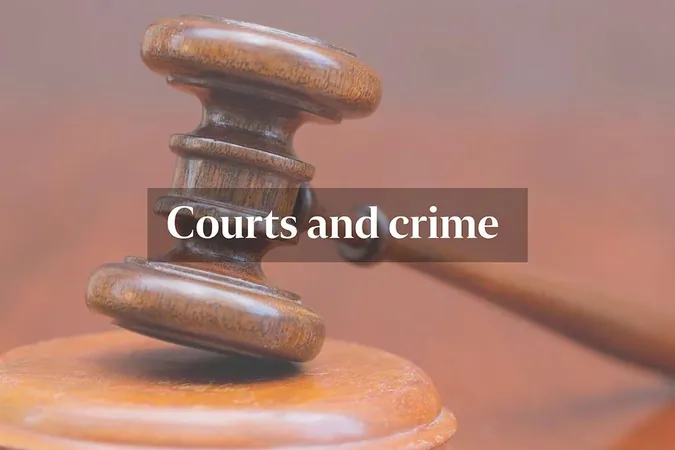
The Hidden Connection: How Stress and Depression Fuel Insomnia and Heavy Drinking
2025-04-14
Author: Rajesh
Insomnia and Alcohol: A Troubling Duo
Insomnia and hazardous drinking are alarmingly linked. Research shows that between one-third and a staggering 91% of individuals struggling with sleep issues also misuse alcohol.
Stress and Depression: The Culprits Behind the Connection
A recent study reveals that stress and depression play pivotal roles in the cycle between insomnia and heavy drinking. Surprisingly, the impact of these mental health challenges can vary depending on which issue arises first. This insightful research was published in the journal Alcohol.
The Study's Key Insights
"We aimed to understand how insomnia contributes to drinking behaviors," explained Jessica Weafer, a leading researcher from The Ohio State University. "Our findings indicate that stress is a significant factor in how insomnia leads to increased alcohol consumption. Conversely, heavy drinking appears to trigger insomnia primarily through depression."
Implications for Treatment
Weafer emphasizes the potential for targeted treatments. By alleviating stress in individuals suffering from insomnia, there may be a chance to reduce their likelihood of resorting to heavy drinking as a coping mechanism.
The Personal and Physical Costs of Poor Sleep and Drinking
Both insomnia and excessive drinking disrupt lives, leading to missed work and diminished productivity. Chronic insomnia is linked to severe health conditions like cardiovascular disease and Alzheimer's. Those with alcohol use disorder (AUD) often find themselves trapped in a cycle of drinking despite facing dire consequences.
A Deep Dive into Research
Weafer’s research also highlights a concerning trend: a high percentage of individuals with AUD also suffer from insomnia. This study involved 405 participants completing questionnaires related to sleep, drinking history, stress levels, and depression symptoms.
Unraveling the Complexities of Stress and Depression
While stress and depression overlap, they are distinct. The study revealed that both factors significantly influence the relationship between insomnia and alcohol consumption. Justin Verlinden, a Ph.D. student and lead author, noted the importance of differentiating between the two conditions to understand their distinct effects.
Connecting the Dots: Findings from the Study
By analyzing the data through various statistical models, researchers discovered that stress is a more significant predictor when insomnia influences alcohol use, while depression plays a critical role when the order is reversed.
A Surprising Revelation
This study's findings underline the necessity of examining both stress and depression simultaneously, shedding light on how these mental states influence patterns of insomnia and drinking.
Conclusion: A Call for Comprehensive Approaches
Stress and depression are crucial, but they are just part of the equation. The connection between poor sleep and heavy drinking is complex, and understanding these relationships can pave the way for more effective treatments and interventions.


 Brasil (PT)
Brasil (PT)
 Canada (EN)
Canada (EN)
 Chile (ES)
Chile (ES)
 Česko (CS)
Česko (CS)
 대한민국 (KO)
대한민국 (KO)
 España (ES)
España (ES)
 France (FR)
France (FR)
 Hong Kong (EN)
Hong Kong (EN)
 Italia (IT)
Italia (IT)
 日本 (JA)
日本 (JA)
 Magyarország (HU)
Magyarország (HU)
 Norge (NO)
Norge (NO)
 Polska (PL)
Polska (PL)
 Schweiz (DE)
Schweiz (DE)
 Singapore (EN)
Singapore (EN)
 Sverige (SV)
Sverige (SV)
 Suomi (FI)
Suomi (FI)
 Türkiye (TR)
Türkiye (TR)
 الإمارات العربية المتحدة (AR)
الإمارات العربية المتحدة (AR)